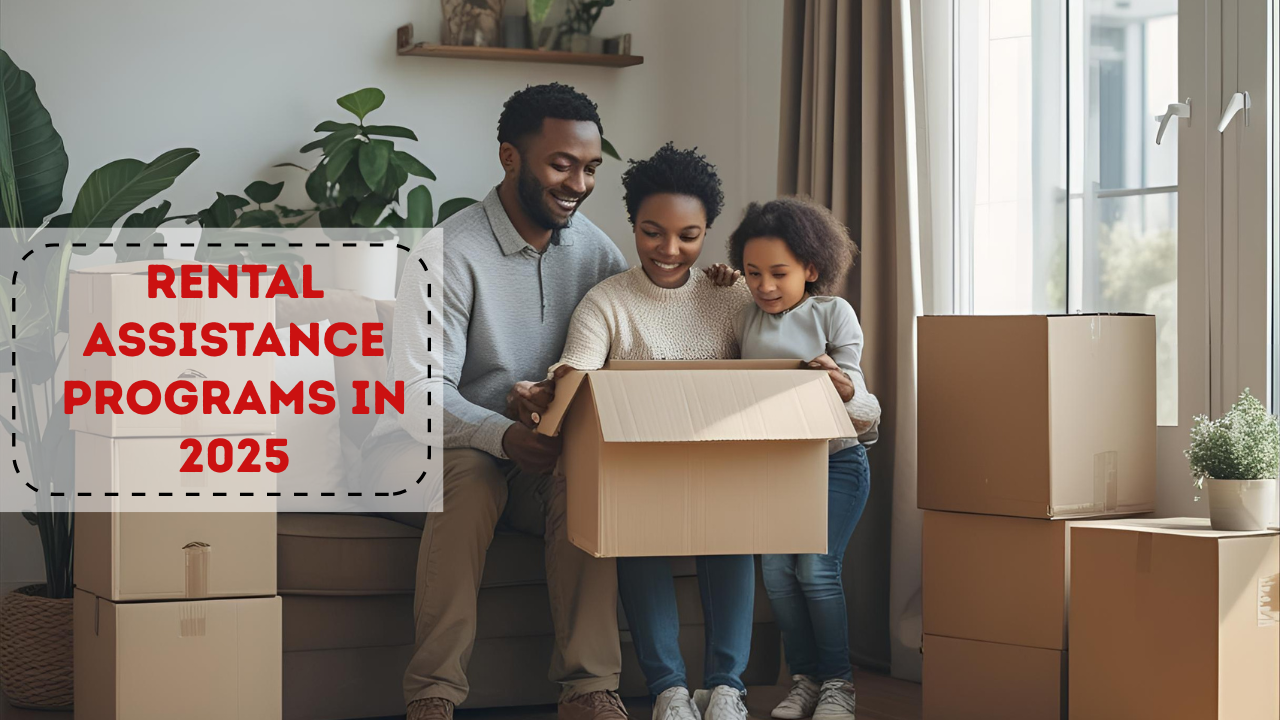With rising living costs and a tight housing market, many individuals and families are struggling to keep up with rent. Whether due to job loss, reduced income, or unexpected expenses, falling behind on rent can quickly lead to eviction or homelessness. Fortunately, rental assistance programs are available across the country to help people stay in their homes during tough times.
This article breaks down the types of rental aid currently offered, who qualifies, and how to apply for support in 2025.
Table of Contents
- What Are Rental Assistance Programs?
- Why Rental Aid Is Still Critical in 2025
- Types of Rental Assistance Available
- Who Qualifies for Rental Assistance?
- Where to Apply for Help
- Tips for a Successful Application
- Final Thoughts: Don’t Wait Until It’s Too Late
1. What Are Rental Assistance Programs?
Rental assistance programs are government-funded or community-based services designed to help tenants cover monthly rent payments and avoid eviction. They offer temporary or long-term relief depending on the program and applicant’s situation.
These programs may pay rent directly to landlords on behalf of tenants or provide grants, subsidies, or vouchers to help families stay housed. Some also assist with utility bills, security deposits, and moving costs.
2. Why Rental Aid Is Still Critical in 2025
Although the COVID-19 pandemic emergency has passed, many households are still recovering financially. With high inflation and skyrocketing rental prices in urban and rural areas alike, housing insecurity remains a major issue in 2025.
Rental assistance is vital because it:
- Prevents eviction and homelessness
- Stabilizes families during emergencies
- Supports children and seniors in maintaining safe living conditions
- Reduces pressure on shelters and public housing systems
Even people with steady income can quickly fall behind after a medical emergency, car repair, or reduced work hours. These programs are designed to catch people before they fall through the cracks.
3. Types of Rental Assistance Available
There are several kinds of programs offering rental help. Here are the most common options available now:
a. Emergency Rental Assistance Programs (ERAP)
These short-term relief programs provide immediate support for people facing eviction or past-due rent. Many states and cities still offer ERAP funds leftover from federal pandemic aid.
b. Housing Choice Vouchers (Section 8)
Administered by local public housing agencies, this federal program helps low-income households pay rent in private market housing. Tenants typically pay 30% of their income, and the program covers the rest.
c. State and Local Rental Assistance Programs
Many states have their own rental aid initiatives, which may include monthly subsidies, one-time grants, or partnerships with local nonprofits to cover housing costs.
d. Nonprofit and Church-Based Aid
Community-based organizations, religious institutions, and charities often provide temporary rental aid, especially for families, veterans, and domestic violence survivors.
e. Utility and Energy Bill Assistance
While not direct rental help, programs that cover electricity, gas, or water bills can ease financial pressure and make it easier for tenants to pay rent.
4. Who Qualifies for Rental Assistance?
Eligibility requirements vary, but most rental aid programs require applicants to meet the following conditions:
- Demonstrate financial hardship, such as job loss or reduced income
- Meet income limits, typically based on a percentage of the area median income (AMI)
- Show risk of housing instability, such as receiving an eviction notice
- Provide documentation, including lease agreements, ID, income verification, and proof of hardship
Some programs prioritize certain groups, such as:
- Families with children
- Seniors or individuals with disabilities
- Veterans
- Domestic violence survivors
- People who are currently homeless or at risk of homelessness
5. Where to Apply for Help
There are several ways to apply for rental assistance depending on where you live:
a. Local Housing Authorities
Visit your local Public Housing Agency (PHA) to apply for federal programs like Section 8.
b. State or County Websites
Most state governments have dedicated portals for rental aid. Simply search your state + “rental assistance 2025” to find the right site.
c. Nonprofit Organizations
Groups like The Salvation Army, Catholic Charities, United Way, and local housing coalitions often have active rental relief programs.
d. 2-1-1 and Housing Helplines
Dial 2-1-1 from your phone to connect with community resources, including emergency rental help.
e. HUD Resources
Visit the U.S. Department of Housing and Urban Development (HUD) website for a list of approved rental assistance programs by location.
6. Tips for a Successful Application
To improve your chances of receiving rental aid, keep these steps in mind:
- Apply early – many programs have limited funding and work on a first-come, first-served basis.
- Prepare your paperwork – gather documents like your lease, proof of income, and identification in advance.
- Be honest and thorough – clearly explain your financial hardship and answer all questions accurately.
- Follow up regularly – check your email, respond to case workers, and stay in touch until your application is processed.
- Ask for other services – some agencies also help with food, transportation, childcare, or legal aid.
7. Final Thoughts: Don’t Wait Until It’s Too Late
Rental assistance programs are more than just financial aid—they’re a safety net designed to protect people during life’s most difficult moments. Whether you’re facing eviction or simply struggling to make ends meet, help is out there.
The key is to act early. Don’t wait until you receive a final notice or court summons. Reach out to housing assistance programs in your area, apply for available support, and take that first step toward regaining stability and peace of mind.
Everyone deserves a safe place to call home. Rental assistance can help you keep yours.

